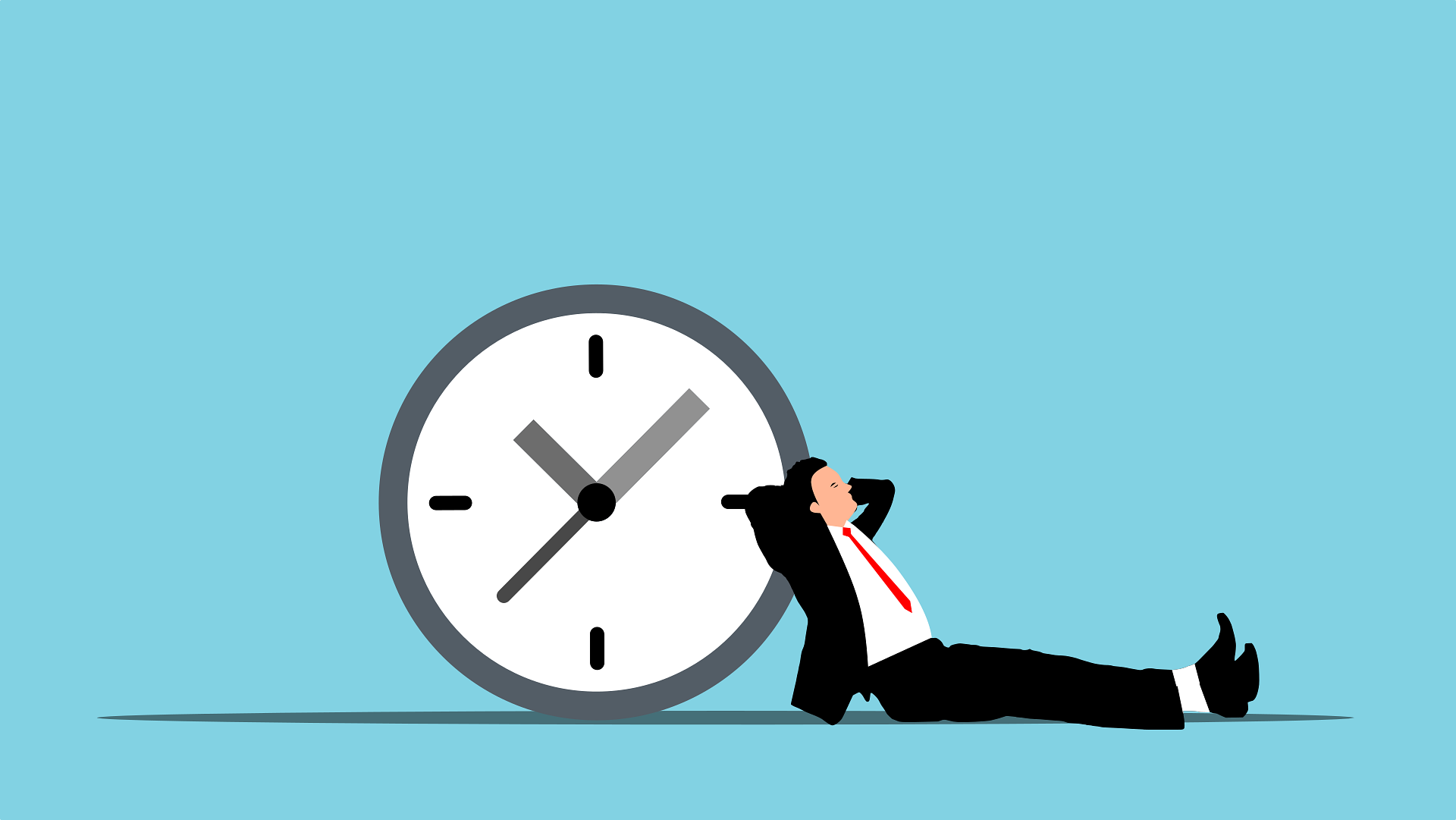Three-Bullet Summary
You’ll benefit more from reading the article the whole way through. But, if you’re pressed for time, here’s a condensed version of The 6 Key Benefits of Sleep for Students:
- Sleep accounts for 25% of the variance between high and low exam performers, and is the difference between a B+ and an A.
- There are 6 key benefits of sleep for students: better mental performance, better academic performance, boosts to immune function, reduced stress, increased energy levels, and improved decision-making.
- Students should reframe wakefulness life as a result of sleep, rather than vice versa, because sleep is the battery that powers them.
Introduction
Imagine if we could pinpoint a factor that makes up 25% of the difference between high and low exam performers. We could take control of our grades and drive ourselves towards exam success by getting this factor working on our side.
Well, recent research has actually identified this factor!
It’s not genetics, study drugs, having high-quality teachers or even time spent revising.
It’s sleep.
The study that produced this data tracked the sleep of 100 university chemistry students and correlated sleep duration, quality and consistency with mid-term exam performance1. Lo and behold, the students with better sleep performed better in the exams.
Like me, you may have asked “sleep can’t be the only factor that caused this difference, right?” and you’d be correct. Several other factors have been shown to dictate exam performance, ranging from a lack of proper guidance before the exam to how peaceful the exam room is2.
So, the researchers, being scientific, used a regression to understand how much each component of sleep contributed to the differences in grades between the low and high achievers. What they found was striking: the three pillars of sleep caused 24.44% of the variance in grades. 7.16% of variance was attributed to sleep duration, 9.68% to sleep quality, and 7.6% to sleep consistency.
The 6 Key Benefits of Sleep for Students
Why do we sleep?
The study we just discussed obviously shows that there are benefits of sleep for students but is only one lens to view sleep through.
Matthew Walker, for example, in his amazing book Why We Sleep (recommended read for any student who wants to improve their grades and performance), uses an evolutionary lens to suggest that natural selection should’ve phased out sleep. This is because when we sleep, we literally lay down — motionless and unconscious — for 8–10 hours at a time. This leaves us completely exposed to predators and is less time spent doing essential things, like gathering resources, hunting or attracting mates.
Not a misguided argument at all; the last thing you’d want to do on the prehistoric, lion-packed Savannah would be to go off-guard for a third of the day.
Moreover, in today’s rise and grind hustle culture, more time spent awake and working is beneficial, right? We can get more done and climb the social hierarchy faster.
Yet, we still sleep. So, why are these perfectly logical perspectives so misguided?
To understand why, we need to highlight the assumption underlying them: sleep is the result of wakefulness. In other words, both perspectives present sleep as stemming from life.
But what if this was backwards? What if sleep wasn’t the result, but rather the cause of wakefulness?
When we reframe sleep as fuel — the foundation on which productivity and success are built — we can clearly see that it is far more than an unfortunate by-product.
This is what science has been saying for generations now. Some of the best research on the planet has demonstrated that the benefits of sleep for students are very real and really impactful.
However, not many perfectly sane human beings want to scan through swathes of scientific papers to get to grips with the benefits of sleep for students. Luckily for you, I’ve condensed hundreds of pages of cutting-edge studies to create this resource: The 6 Key Benefits of Sleep for Students.
Sleep Boosts Mental Performance
Sleep is when our brains develop.
Research has shown that procedural memories (skills and performing tasks effectively) and declarative memories (recalling facts and information) are forged in the deep stages of sleep3.
Put another way, when we’re awake and exercising our brains, we’re activating the signal for growth; sleep is the time of day when the signal is responded to and our brains actually grow and we get smarter. So, when we skip out on sleep, we essentially train it and don’t let it recover from the complex tasks it’s been assigned during the day.
It is therefore unsurprising that remaining awake for 17–19 hours, which is the equivalent of waking up at 8am and staying awake until 1–3am the next morning (AKA, the average university student), causes individuals to perform worse on exams and cognitive tasks than those with a blood alcohol concentration of 0.05%: the level that most countries can legally deem you a drunk driver4. In other words, a lack of sufficient sleep equips you with less mental horsepower than a drunk person.
In essence, the research shows that memory, effective recall and cognitive sharpness are all features of a consistently good sleep schedule.
Sleep Boosts Academic Performance
The previous benefit highlighted how sleep is when our brains undergo repair and growth. During this process, neuroplasticity and neurogenesis both occur, meaning our brain cells rewire and new neurons develop5. Consequently, our brains cement memories and new information whilst we sleep, allowing us to learn and execute tasks more efficiently the next day.
Because academic performance is a result of honed mental abilities and effectively responding to the cognitive demands of exams, sleep — the state that our brains develop in — is therefore one of the primary drivers of it.
A recent study with an 8-hour sleep challenge proved just how effective sleep is for getting better grades6. Compared to their peers, students who slept for 8 hours or more during the five days leading up to their end-of-year exams and participated in the challenge received extra credit. At the end of the study, the researchers found that study participants slept 98 minutes more each night than non-incentivized students and displayed equal academic performance despite a decrease, on average, of 490 minutes of wakefulness.
Other studies have reinforced this idea that quality sleep is a student’s best friend. For instance, cram revision at the expense of sleep the night before an exam has been proven to actually worsen academic performance compared to students who prioritise sleep7.
Additionally, recent research has shown that the average score of a student who’s pulled an all-nighter on a true/false exam paper is 56.7%, whereas for a student who’s slept 8 hours this figure is 69.0%8.
The benefits of sleep for students are crystal clear: if you want better grades, you need to put sleep on the same pedestal as studying.
Sleep Strengthens the Immune System
Everything gets infinitely harder when you don’t have your health.
For one thing, you probably won’t be able to attend your classes. You’ll also lack the motivation and energy to be productive and study. In turn, having a functioning immune system that can efficiently fight off illnesses is clearly important for students.
Sleep plays a major role in supporting the immune system9. Because other major systems of the body essentially quieten down whilst we sleep, the immune system is given permission to go to work and fight illnesses. Furthermore, during sleep, our bodies produce cytokines, which are essentially proteins that regulate and communicate with the immune system, lighting up areas that need healing. This emphasises how our immune system kicks into gear behind shut eyes.
This also explains why students who sleep well get ill less. The opposite is also true: students who sleep poorly are more likely to take days off and perform worse as a result.
A 2017 paper supports this idea. The researchers found that when a school that starts its day later and commences lessons at 10:00am instead of 8:50am, it has rates of student illness that are 50% lower.10. The school also performs better than it did when opening time was 8:50am, and achieves above the national average, showing how not getting sufficient sleep, which is a trend of the modern education system, damages student health and performance.
So, one of the main benefits of sleep for students is that it promotes physical recovery by being the backbone of our immune systems.
Sleep Mitigates Stress
There’s a reason for the expression ‘sleep on a problem’.
When we’re stressed out and worried, our bodies activate their sympathetic (fight or flight) nervous systems. Steroid hormones like cortisol and adrenaline flood the body, the pupils in our eyes constrict as we become tunnel visioned, and blood rushes to the body’s major muscle groups. Basically, our bodies equip us with the tools to overcome stressful situations, which used to be encounters with vicious predators but now are now upcoming assignment deadlines.
Although this system is essential for survival, we don’t want it chronically elevated because it can prevent us from resting and recovering properly. Furthermore, it also has detrimental effects on sleep, meaning if we don’t destress properly, the negative impacts of sleep deprivation start unfolding.
Although stress can impact sleep, sleep can also impact stress. It is associated with the parasympathetic (rest and digest) nervous system, which is the polar opposite of the sympathetic nervous system, and is therefore connected with stress reduction in several ways:
- Consistently getting enough high-quality sleep is associated with lower levels of circulating stress hormones and feeling more relaxed throughout the day11. Inversely, not getting enough high-quality sleep is associated with higher levels of circulating stress hormones. This can be detrimental as if these hormones are constantly elevated, we may struggle to get into a restful state and sleep well. Then, because of poor sleep, the stress hormones remain elevated, creating a vicious circle.
- Healthy sleeping patterns are associated with less cravings for calorie-dense, processed foods12. Because consumption of these foods is highly connected with heightened stress levels and a driver of obesity 13, sleep plays a dual role in reducing the stress that drives junk-food consumption and, as a result, the emotional and physical stress that comes with an unhealthy body composition by preventing you from getting there in the first place.
- Sleep reduces anxiety14 and depressive symptoms15, which both trigger the fight or flight response.
- Getting enough quality sleep during the buildup to exams has been proven to reduce exam anxiety in particular16. One reason for this is that sleep genuinely makes you smarter by promoting efficient memorisation and recall. Therefore, if you sleep well during exam season, all the content you’ve revised will sink into your brain easier, leading you to feel more prepared when you sit the exam than if you hadn’t slept well.
Therefore, sleeping well is a totally free tool we can use for hindering stress, its causes, and, subsequently, all the destructive behaviours connected with it. This really underscores the benefits of sleep for students, as we’re a high-stress demographic who need all the tools we can to stay focused.
Sleep Increases Energy Levels
You know that feeling when you have to catch an early flight? It’s a blend of “Where’s the over-priced coffee shop?” and “If I had just one opportunity to teleport in my life, it would be now because I really can’t be asked with a 2-hour delay!” — a marriage between sluggishness and sarcastic anger.
Being prematurely awoken is what drives this feeling.
Sleep has consistently been shown to increase energy levels and enhance mood17. It essentially does this by replenishing the brain’s glycogen (fuel) stores, which are depleted throughout the day as adenosine (the fatigue chemical) accumulates18. So, without sleep we don’t revitalise our brains, causing us to feel tired, ill and irritable as a result.
Think about it this way: if sleep is the time for repair and growth, then wakefulness is essentially low-level self-harm — the signal for sleep to do its thing and bring us back stronger tomorrow, as said earlier. In turn, if we fight the biological necessity to sleep, then we inevitably feel lethargic.
It is no coincidence that only 10% of students sleep for the recommended 8–10 hours 19 yet the most common emotion that students report feeling (just ahead of stress and boredom — we wouldn’t be very fun to watch on Mr. Men, for sure) is tiredness20; we’re skimping on the stage of the day that powers our wakefulness batteries!
Simply put, if you want to be sharp, fresh, resistant to stimulants and have the energy to be productive (AKA, the opposite of catching an early flight), then consistently getting your 8–10 hours of quality sleep is essential.
Sleep Drives Better Decision-Making
Here’s a list of tragic decisions:
- Contemplating suicide and devaluing your self-worth.
- Drinking excessive amounts of alcohol.
- Taking illegal or recreational drugs.
These decisions are called the decisions of despair21. Decisions of despair become deaths of despair if they lead to fatalities, which are among the most significant killers of young adult and adolescent students today22.
Guess what?
Poor sleeping patterns are associated with all three decisions, and the deaths caused by them. Suicidal behaviours and successful attempts increases with poor sleep23, alcohol consumption and related liver disease skyrocket24, and drug addiction and overdose become much more likely25. In fact, when the clocks go forward an hour each year and we lose an hour of sleep, deaths of despair increase by 6.59%26.
These facts are devastating but also have a silver lining: because sleep is one of the players preventing us from making decisions of despair, we have an element of control over them. We decide when to go to bed and, therefore, can reduce our chances of making the decisions that don’t benefit us.
If that’s not enough to persuade you to sleep, then you should know that sleep facilitates other decisions that are directly relevant to students. For example, healthy sleeping patterns are associated with better choices in exams in both number- and essay-based subjects, and, therefore, have a major impact on end-of-year grades27. In fact, the study that produced this data demonstrated how the final Grade Point Average (GPA) score differs by 0.47 points between those who regularly sleep badly relative to those who never do. This is about the difference between a B+ and an A — your second-choice university/college and your dream one.
Because a healthy and regular sleep schedule has all these beneficial impacts on decision-making, arguably the best decision it will lead you to make to prioritise sleep! Once you experience its performance-enhancing effects, you will simply value it more and bolster your health and long-term success as a student by treating it with equal priority to wakefulness.
Final Thoughts: The 6 Key Benefits of Sleep for Students
Nobody’s got a perfect sleep routine. We all have days when we want to party, celebrate big events and get to the airport at 4am. It’s part of being a happy, socially adept student.
However, these are one-offs. If you continually ignore your body’s need for a consistent 8 (minimum) hours of quality sleep, then the research outlined in this article indicates how you’ll…
- Possess less brain power than a drunk person on exam day.
- Have to be awake for 490 more minutes over the five weekdays leading up to your exam to obtain the same results as a person who just slept more than you.
- Increase your likelihood of selecting incorrect answers in your exams and compromise your end-of-year grades.
- Compromise your health by weakening your immune system and making decisions with potentially lethal consequences.
The benefits of sleep for students cannot be understated.
Live your life, but realise that if you want to blossom whilst living it, then you need sleep to be working for rather than against you.







